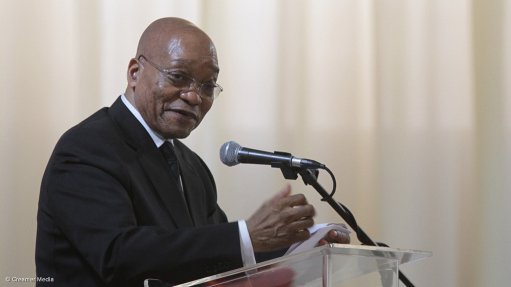
South African President Jacob Zuma
Photo by: Duane
Bishop Gabuza has said that Justice and Peace Commission is closely following the developments around the Public Protector’s state capture report and is deeply worried.
“We acknowledge that the president has the right to clear his name in any allegation levelled against him. We however appeal to him to ensure that this is not undertaken in a manner that erodes public confidence in his office as the key custodian of the constitution, including the Chapter nine institutions.” says Bishop Gabuza.
Former public protector Thuli Madonsela was to release her report on Friday‚ but this was delayed after applications were brought by Zuma and Cooperative Governance Minister Des van Rooyen to interdict it being issued. Bishop Gabuza said he is “also worried that the untested allegations of undue influence in the appointment of the finance minister as a way to capture the Treasury will continue to have far-reaching economic and political implications if they are not handled properly and expeditiously”.
He therefore believes that it is in the interest of the common good and the poor that “these serious allegations be tested outside the realm of partisan politics, either in a chapter nine institution or a court of law, and be concluded expeditiously before they pose further damage on our economy and its ability to create jobs for the poor.”
Bishop Gabuza also took a dig at political parties‚ saying “they have not done enough to demonstrate that they are genuinely serious about ending state capture in South Africa”.
“If the political parties in our country want us to believe that they are genuinely serious about fighting state capture and corruption‚ they should concede to civil society call to regulate political party funding‚” he said.
“Corruption and undue corporate influence on the government are pervasive at all the levels of government and therefore require systemic interventions. “We believe that one such systemic intervention is legislation to regulate private sector funding to political parties both during and between election periods.”
Without this‚ said Bishop Gabuza‚ “it is difficult to establish whether tenders are being allocated to certain businesses‚ and whether government posts are being offered to certain people as a result of what companies have donated to political parties and individual politicians at the level of national‚ provincial and local government”.
Issued by SACBC Justice and Peace Commission